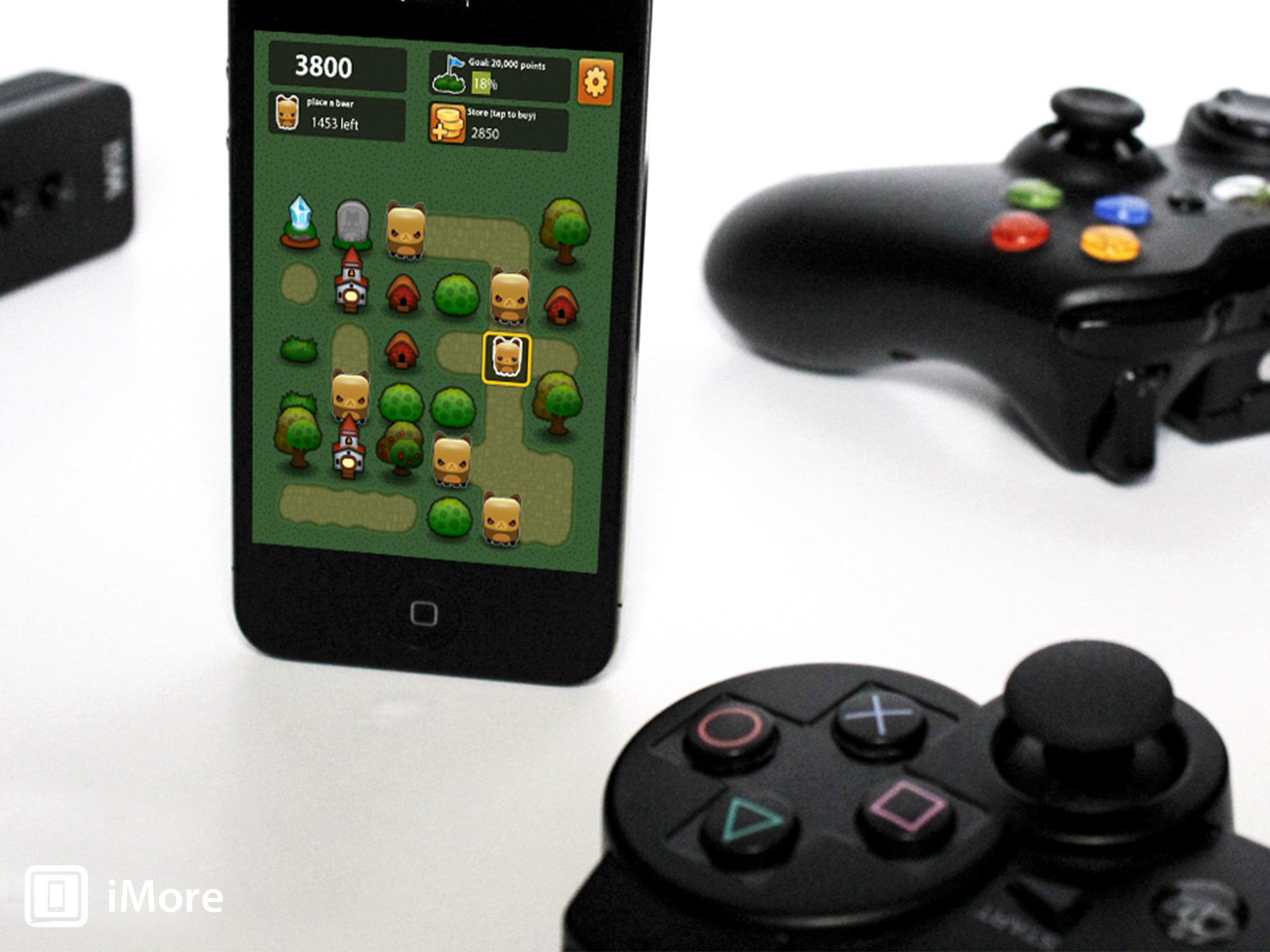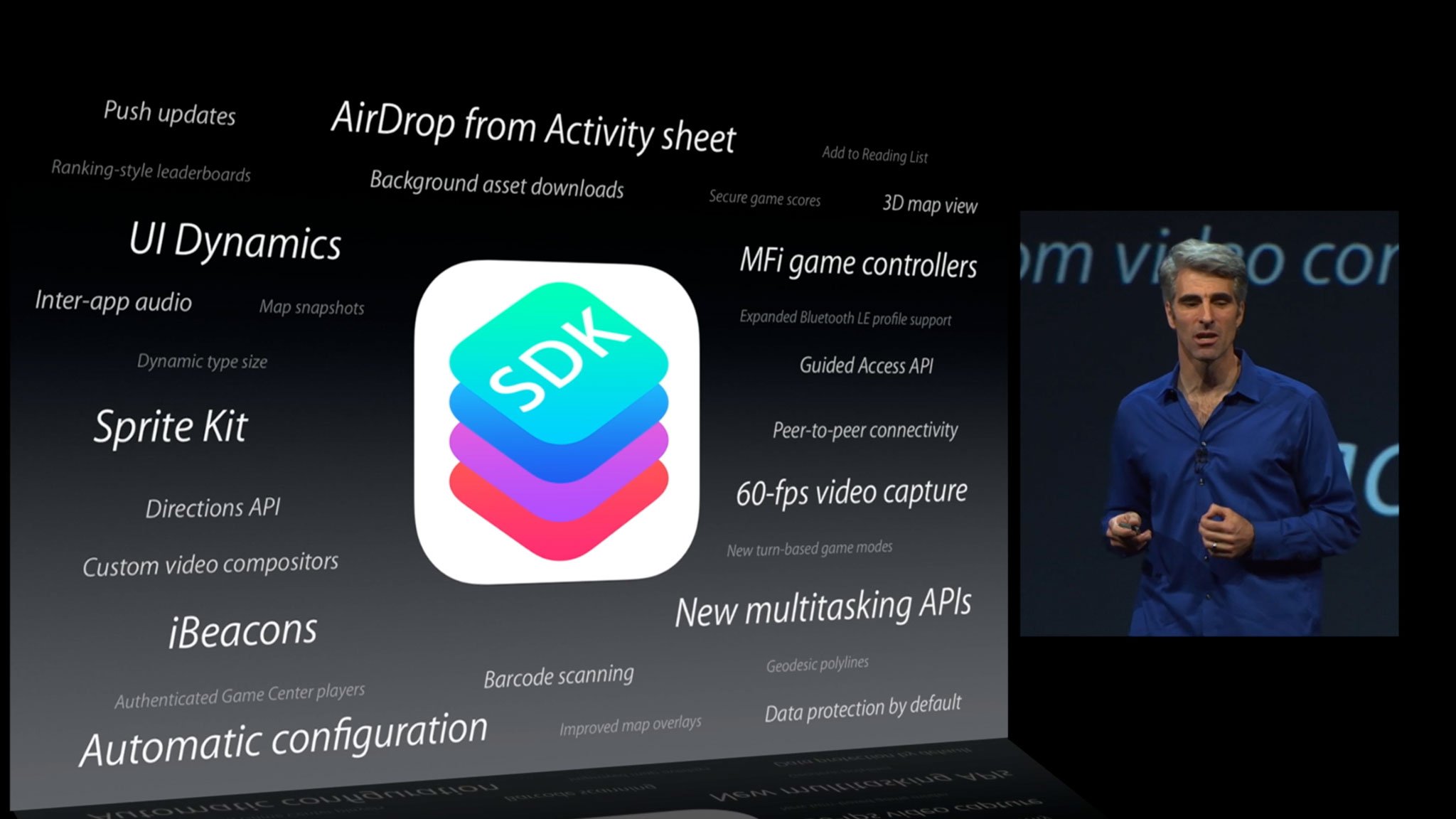iOS 7 preview: Accessory support for iBeacons, game controllers, and more!

iOS 7 increases iPhone, iPad, and iPod touch support for accessory makers, including new iBeacons for location transmission, game controllers, and a slew of improvements for speakers, keyboards, and more!
iOS 7 will bring not only an entirely new, dynamic interface to the iPhone, iPod touch, and iPad, along with powerful new APIs for app developers. But accessory makes are getting some great new features as well, and that means, presuming they take them and run with them, we'll be getting great new accessories that tie into our location, that let us get our game on, and that make our existing speakers, keyboards, and more work better than ever.
Here's what Apple{.nofollow} has to say about what iOS 7 offers accessory makers, and us.
Enhance your apps with support for new types of accessories. iBeacons are a new class of low-powered, low-cost transmitters that can notify nearby iOS 7 devices of their presence. iBeacons will provide apps a whole new level of location awareness, such as trail markers in a park, exhibits in a museum or product displays in stores. Other new features include the ability to setup and configure Wi-Fi accessories, such as AirPlay speakers, directly from iOS. And iOS 7 works with more Bluetooth LE profiles, including time, notifications, keyboards, and stereo sound.
And here's - what little else - they've said about it so far:
- Integration with 3rd party MFi (made for iPhone) game controllers.
- iBeacons will allow for micro-location over Blue Tooth LE (low energy)

Peter Cohen has already elaborated on the benefits of MFi game controller support, and I'll quote this bit:
Games that are created from the ground up for iOS, and ones that are really cleverly designed to work on touch interfaces, won't benefit from game controller support in iOS 7. But there are hundreds, if not thousands of games that will.
Games are, in part, defined by the control schemes available to them. Pong was fantastic with paddles. Modern real-time strategy games can benefit from a full-on PC keyboard. By going beyond the touch screen, Apple will be allowing not only accessory makers to create gamepads for iPhone, iPad, and iPod touch, but developers to create games that take advantage of them. That's a whole new category of games.
It's also a step towards the future Guy English spoke about on Talk Mobile 2013, where we can walk into a living room, drop our phones on a table, pick up a controller, AirPlay to a big screen TV, and displace the current consoles. It's a step towards the mobile devices becoming mobile brains, and adapting to different environments.
Now the manufacturers and developers have to start delivering on that future, today.
Master your iPhone in minutes
iMore offers spot-on advice and guidance from our team of experts, with decades of Apple device experience to lean on. Learn more with iMore!
The same holds true for iBeacons. Their success or failure depends on more than just Apple, but on enough places deploying them for them to become meaningful. Micro-location requires micro-locators, small, Bluetooth LE devices that are placed in homes, offices, schools, or other places in order to create a navigation system something like GPS (global positioning satellites) but in an indoor, decidedly terrestrial way.
The interaction between an iOS device and an iBeacon could turn off a light when you leave a room, or on a coffee maker when you enter a house. It could help you find your way to a meeting in a building you've never been to before, or your way along a hiking trail for the first time. It could help a child who requires visual assistance get to their class on time, or a group of children making their way through a science exhibit.
Again, if they're deployed in specific quantities. I'm not sure if the technology or its implementation is specific to Apple, but if it is, and if it's iOS only, than that might curtail wide-scale deployments which require a service with cross-platform support (like GPS). Hopefully iBeacons are a type of micro locator that works with general micro locator technology, and bolster accessibility.
On-device Wi-Fi accessory setup is a boon, and a sign that we're increasingly moving to a mobile first, or mobile only world for some, where the post-PC is no-PC and iPhones and iPads need to be able to handle things all on their own.
And, of course, better working Wi-Fi and Bluetooth accessory support is better.
We'll find out more when MFi game controller support and iBeacons and all the rest when iOS 7 ships this fall. In the meantime, let me know what kind of game controllers you're most looking forward to - old school SNES, classic Xbox, PC-style gamepad, or something else entirely?
- iOS 7: Everything you need to know
- iOS 7: Discussion forum

Rene Ritchie is one of the most respected Apple analysts in the business, reaching a combined audience of over 40 million readers a month. His YouTube channel, Vector, has over 90 thousand subscribers and 14 million views and his podcasts, including Debug, have been downloaded over 20 million times. He also regularly co-hosts MacBreak Weekly for the TWiT network and co-hosted CES Live! and Talk Mobile. Based in Montreal, Rene is a former director of product marketing, web developer, and graphic designer. He's authored several books and appeared on numerous television and radio segments to discuss Apple and the technology industry. When not working, he likes to cook, grapple, and spend time with his friends and family.
